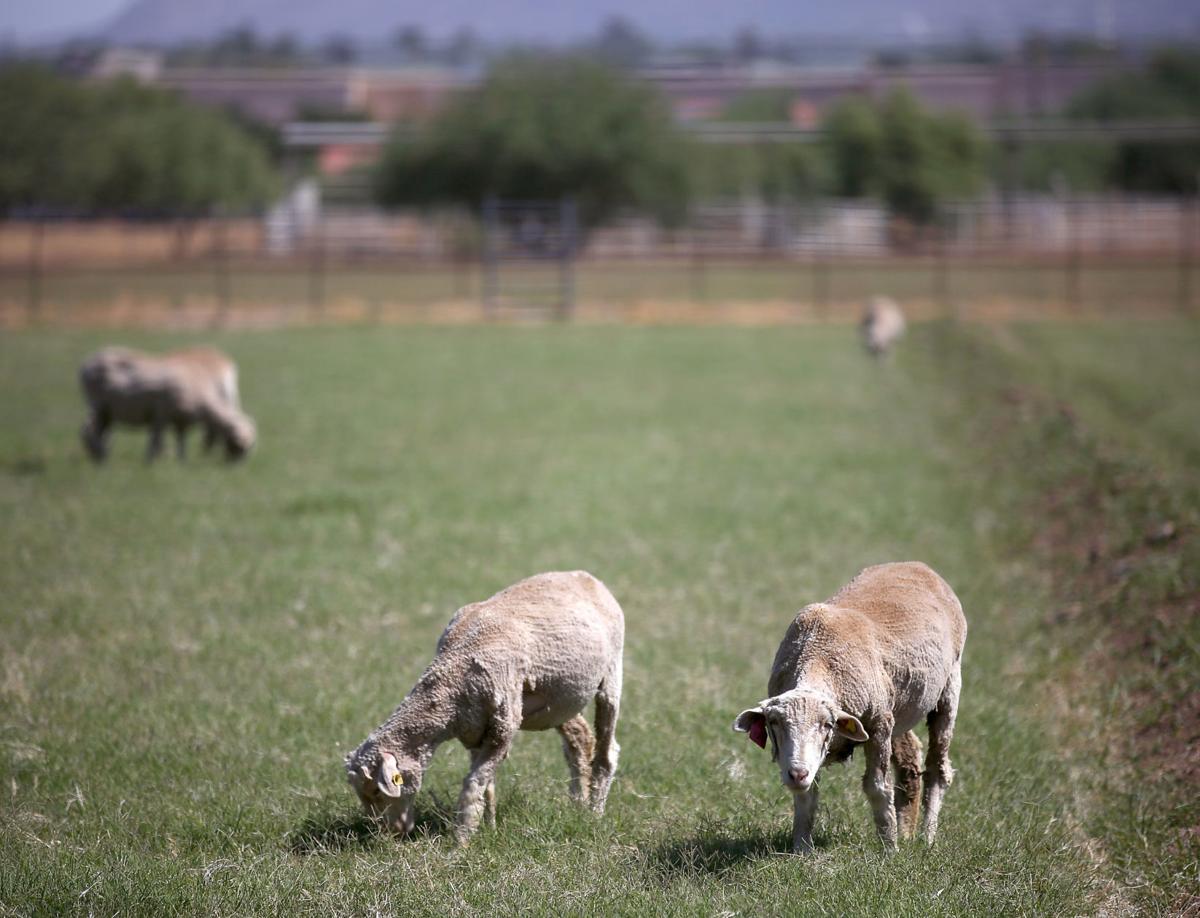A Tucson neighborhood association near the University of Arizona’s Campus Agricultural Center is hoping to halt any sale of the farmland used for many years of research activities.
Recent comments by UA President Robert Robbins describing the land’s monetary value prompted members of the Campus Farm Neighborhood Association to worry, according to Bonnie Poulos, who formed the association following rumors of a sale in the 1980s.
At that time, the UA sold land from a citrus research site, a Tucson animal farm and parts of its farmland in Casa Grande, according to UA archives. The land was sold due to the program leaders’ desires for new farmland in Maricopa and Pinal counties.
The Campus Agricultural Center and the Yuma Agricultural Center were spared.
“One of the things we did was send out a survey to the neighborhood about what was the most important thing that made you want to live here,” Poulos said. “The No. 1 response of almost all the people was the campus farm. So for those of us who live here, the farm is part of our quality of life.”
Poulous, who spent more than 20 years at the College of Agriculture, said this same issue arose in the 1990s as an analysis was completed to compare and contrast the costs of uprooting research from the site so it could be sold.
During a May 7 town hall, residents heard similar sentiments from Robbins about the farm’s value and his description of the unusual financial position the university is in during the pandemic.
“I’m told by all of the commercial real estate developers the most valuable land in all of Tucson is the Campbell farms area, would we sell that and would we would have a long-term lease?” Robbins said.
First purchased in 1909 as what was formerly known as the Campbell Avenue Farm, the Campus Agricultural Center is a 160-acre research, teaching and cooperative extension facility. It houses 11 of the College of Agriculture and Life Sciences departments and 70 different multidisciplinary research units in fields, laboratories and greenhouses, according to the UA.
“Do we start selling land, start selling buildings, start selling our art collection? I think all of these things are under consideration,” Robbins said during the town hall. He added that the UA wanted to gather feedback from the campus community and the Arizona Board of Regents as part of the school’s decision-making process.
"We're tough as saguaros," editorial cartoonist David Fitzsimmons says. He says he saw a video made for the people of Detroit and became inspired to do his own take for Tucson.
Pushing for UA to make “rational decision”
A few week later, it was Poulos who made sure the association knew about the UA’s possible sale of the land due to an anticipated loss of $250 million through the end of the 2021 fiscal year.
“We don’t trust that a rational decision is going to be made at a time when the university is facing one of the biggest budget crunches it has ever had,” Poulos said.
“So we don’t consider this just a rumor, but in reality a very grave threat to the continued use of the farmers and agricultural center.”
Currently, it’s too early to tell if the sale will occur, according to a prepared statement from the university.
“The University of Arizona continues to own and operate its Campus Agricultural Center in north Tucson. Although the financial impacts of the COVID-19 pandemic on the university are significant, no decision regarding this property has been made,” the UA said.
“As we assess the consequences of the ongoing crisis for the university, we also will continue to explore ways to protect assets such as the center while ensuring we continue to fulfill our mission to educate the next generation and to support Arizona as its land-grant university.”
The neighborhood association is looking to let the “powers that be” know what the land means to it through calls and letters to the administration and the Arizona Board of Regents, letters to the editor, and reaching out to Tucson council members.
However, Poulos said it’s not the group’s intention to be an adversary but a supporter of the university’s land-grant mission and its award-winning work.
“We feel like it’s important, especially in this time of looking at food security, sustainability,” Poulos said, “growing produce and other foods locally as opposed to depending on a nationwide system of delivery. We feel like the university can really contribute to that.”





